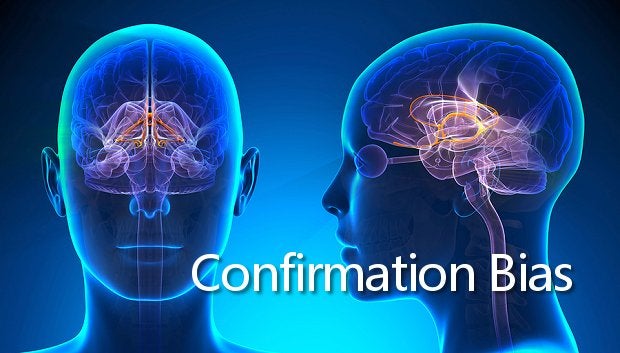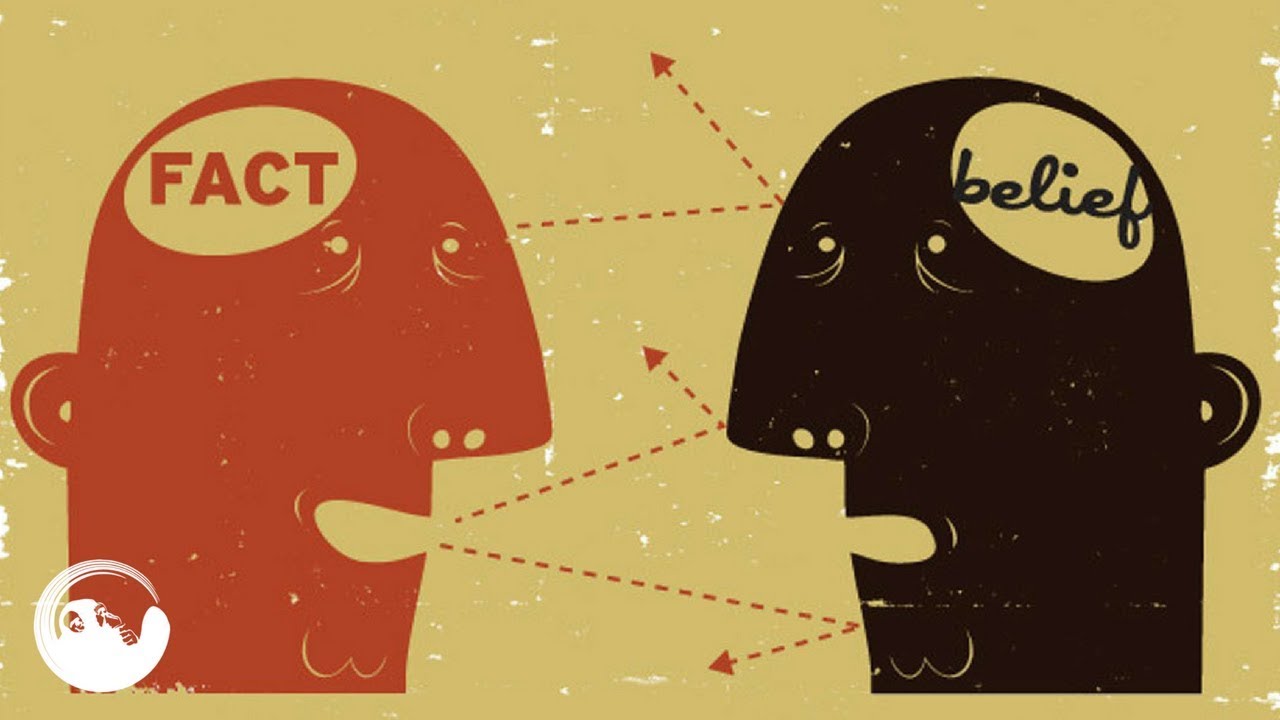Confirmation bias is the tendency to search for, interpret, favor, and recall information in a way that confirms one’s preexisting beliefs or hypotheses.
Confirmation bias is the tendency to search for, interpret, favor, and recall information in a way that confirms one’s preexisting beliefs or hypotheses. It is a type of cognitive bias and represents an error in inductive reasoning. People display confirmation bias when they gather or remember information selectively, or when they interpret it in a biased way.
The effect is stronger for emotionally charged issues and for deeply entrenched beliefs. For example, people may tend to notice and remember instances that confirm their existing beliefs about other people (such as stereotypes), while ignoring evidence to the contrary.
Table of Contents
Confirmation Bias Example
What is confirmation bias?
Confirmation bias is the tendency to interpret new evidence as confirmation of one’s existing beliefs or hypotheses.
For example, let’s say you believe that it’s going to rain tomorrow.
You might pay attention to all the news reports about the impending rainstorm, while ignoring forecasts that predict sunny weather. This would be an example of confirmation bias.
Why do we have confirmation bias?
One explanation for why we have confirmation bias is that it helps us save time and energy by allowing us to quickly confirm what we already believe. We don’t need to waste time considering evidence that contradicts our beliefs because we already know that it’s wrong.
However, this shortcut can lead us astray when important new information arises.
In our rainstorm example, you might miss out on enjoying a beautiful day tomorrow because you were too busy preparing for the storm that never came.

Credit: psychcentral.com
What is a Confirmation Bias Example?
A confirmation bias is a type of cognitive bias that occurs when people favor information that confirms their beliefs or hypotheses. For example, someone who believes that global warming is caused by human activity may be more likely to notice and remember evidence that supports this view, while downplaying or forgetting evidence that contradicts it. This can lead to a self-reinforcing cycle, in which people end up believing what they want to believe due to their own biases.
There are many examples of confirmation bias in everyday life. People often seek out information that supports their existing beliefs, and they may interpret ambiguous evidence as being supportive of their views even when it is not. This can lead to partisan thinking and polarization on issues where there is actually a good deal of agreement.
It can also lead people to make poor decisions, such as investing in a stock based on faulty data that confirm their preexisting beliefs.
Confirmation bias is a ubiquitous phenomenon, but it can be difficult to overcome. One way to do so is by seeking out diverse perspectives and actively considering evidence that goes against your own views.
Another approach is through “pre-mortems”: imagining that something has already gone wrong and then trying to identify all the ways in which it could have happened. By taking these steps, you can help mitigate the effects of confirmation bias in your own life and make better decisions overall.
What are the 3 Types of Confirmation Bias?
Confirmation bias is the tendency to search for, interpret, favor, and recall information in a way that confirms one’s preexisting beliefs or hypotheses. It is a type of cognitive bias and represents an error in inductive reasoning. People display confirmation bias when they gather evidence to support their own views while ignoring evidence that contradicts them.
There are three primary types of confirmation bias: self-serving bias, selective memory, and biased interpretation.
Self-serving bias is the tendency to attribute positive outcomes to oneself and negative outcomes to external factors. For example, if you do well on a test you may attribute it to your intelligence or hard work while attributing your poor performance on another test to the difficulty of the material.
This type of confirmation bias can lead people to overestimate their abilities and underestimate how much effort they need to put forth in order achieve desired results.
Selective memory is another form of confirmation bias whereby people only remember information that supports their beliefs while forgetting contradictory information. In some cases, people may even unconsciously distort memories to make them fit with their existing beliefs (a phenomenon known as “false memories”).
This type of confirmation bias can lead people to hold onto inaccurate beliefs even when presented with facts that disprove them.
Finally, biased interpretation occurs when people interpret new information in a way that confirm their existing beliefs while discounting any evidence that contradicts those beliefs. For example, if you believe that global warming is real then you may be more likely to notice news stories about extreme weather events while discounting reports about relatively mild weather patterns.
This type of confirmation bias can result in tunnel vision where people only see what they want/expect to see without considering alternative perspectives.
While confirmation biases are often undesirable because they can lead us astray from objective reality, there are also times when these biases can be helpful. For instance, if you’re trying to lose weight it may be useful for you display some self-serving biases (e.g., attributing your weight loss progress solely to your diet/exercise regimen instead of also acknowledging other potential contributing factors such as stress levels or hormones).
Similarly, if you’re trying to quit smoking it may be helpful for you selectively remember all the negative health consequences associated with smoking cigarettes while forgetting any pleasurable moments experienced while smoking (e..g., after dinner relaxation).
What is a Confirmation Bias in Psychology?
A confirmation bias is a type of cognitive bias that refers to the tendency to search for, interpret, or remember information in a way that confirms one’s preconceptions or hypotheses.
For example, if you believe that all politicians are corrupt, you may be more likely to notice and remember instances of political corruption than someone who doesn’t hold this belief. This can lead to a self-reinforcing cycle, in which your beliefs become increasingly skewed and distorted as you selectively pay attention to information that supports them while ignoring or dismissing anything that contradicts them.
Confirmation biases can have far-reaching consequences, affecting everything from the decisions we make about our personal lives to the policies we support as citizens. They can also lead us astray in our quest for knowledge, causing us to misinterpret evidence or cling tenaciously to beliefs even after they’ve been debunked.
What is Confirmation Bias And Why is It Important?
Confirmation bias is the tendency to search for, interpret, or remember information in a way that confirms one’s preexisting beliefs or hypotheses. Confirmation bias is a type of cognitive bias and represents an error in critical thinking. This phenomenon occurs when people focus on evidence that supports their beliefs while ignoring evidence that contradicts them.
The existence of confirmation bias has been demonstrated in many experiments and has been shown to affect people’s decisions and judgments in a wide variety of domains, including medical diagnosis, investment decision-making, eyewitness testimony, and criminal justice. The effects of confirmation bias can be devastating; for example, if people believe false rumors about a product or stock, they may avoid buying it and cause its price to drop unnecessarily. Similarly, if doctors only look for evidence that supports their preferred diagnosis, they may fail to diagnose a patient with a serious condition.
There are several ways to reduce the impact of confirmation bias. One is to actively seek out evidence that could disconfirm one’s beliefs. Another is to Be aware of the tendency to fall prey to confirmation bias and make an effort to counter it by looking at all the evidence objectively.
Conclusion
Confirmation bias is the tendency to search for, interpret, favor, and recall information in a way that confirms one’s preexisting beliefs or hypotheses.
It has been shown that people tend to be more likely to believe information that supports their existing beliefs and discount information that does not. Confirmation bias is a type of cognitive bias and represents an error in reasoning.
People with strong opinions on certain topics are especially susceptible to confirmation bias.
The blog post discusses confirmation bias and how it can lead people to discount information that does not support their existing beliefs. The author notes that confirmation bias is a type of cognitive bias and represents an error in reasoning.
People with strong opinions on certain topics are especially susceptible to confirmation bias. The post provides several examples of how confirmation bias can distort someone’s view of reality.
